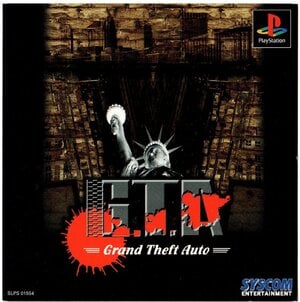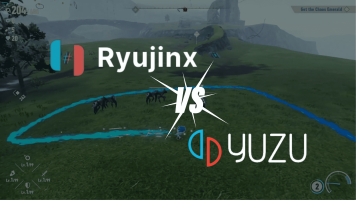So it's no surprise, then, that Rockstar Games wanted to see the title come to other parts of the world too, with both Take-Two and its newly-famous subsidiary specifically setting their sights on the Japanese market as their next area of conquest.
In the past, Grand Theft Auto 1 and Grand Theft Auto 2 had been released in the region under two smaller publishers named Syscom Entertainment and Zoo Corporation, but for the third game in the series, Rockstar and Take-Two felt they needed to aim a little higher, singling out the Resident Evil creators Capcom as its publisher of choice. So, in order to make the deal happen, Take-Two's original founder Ryan Brant tasked Susan Cummings, a former director of development at Rockstar with cutting a deal with the Japanese company — something she admits she had never done before up until that point.
Speaking to GameParadise, she told us, "It was complex. Because at the time, no one had managed to do it. Ryan asked me to handle it, and I had no experience in doing deals in Japan at that point. We reached out to a bunch of publishers. We did a deal with EA — EA Square was a conglomerate at the time — for Max Payne and then Grand Theft Auto was harder because at the time they had no age rating. They had no ESRB. So if you tried to sell a mature game there it was the same as selling a Nintendo game. A six-year-old could buy it."
At the time that Cummings reached out to Capcom, the official rating board CERO (the Computer Entertainment Rating Organization) had yet to be established, with the existing rating board CESA (the Computer Entertainment Supplier's Association) being limited to the classification of PC games. As a result, it was up to the discretion of platform holders to decide whether a game should be released on a console or not, based on a different set of criteria for each console manufacturer. Luckily, for Rockstar though, this was all about to change with Kenzo Tsujimoto, the CEO of Capcom and then head of the CESA, advocating for the Japanese games industry to begin a separate organization that would also classify and regulate console releases.
"If I remember correctly, it was about six months to a year later that Japan set up CERO, which is their version of ESRB," Cummings told us. "And every few years or year — whatever it is — the chairman changes to another game publisher. So our luck was that Capcom was going to run this first, and Capcom was who we were trying to do the deal with. So it made it very easy for us to deal with them and get it out."
Interested in finding out more about this, we asked Cummings who she dealt with in Japan and were given the name of Tetsu Takahashi — a producer at Capcom Studio 6, a division of the studio in Japan responsible for licensing and publishing Western games in the country. Takahashi had previously joined the company back in September 2001 and was among those who worked alongside Cummings to bring the game to the country, along with his boss and the head of Capcom Studio 6, Ray E. Nakazato. Takahashi was able to give us some slightly more accurate information about Tsujimoto's advocacy for self-regulation in the Japanese games industry as well as a greater insight into how it relates to the eventual release of Grand Theft Auto III in the region.
"Our CEO, Kenzo Tsujimoto, convinced the industry that we should self-regulate and have a rating system similar to the ESA," Takahashi said over LinkedIn. "He also convinced Sony that it is not the responsibility of 1st parties to regulate content. Sony also supported this new rating system by making it mandatory for all titles to be rated, and as long as it is rated they will no longer review (QA) games for content/expression.
CERO was eventually established in June 2002 and began the classification of console games later that year. The partnership between Rockstar Games and Capcom, meanwhile, wasn't announced until the following year, with a press release being sent to various outlets on June 18th, 2003.
Grand Theft Auto III later received a discounted Japanese release as part of Capcom's "Capcolle" label in December 2004. A PC version was also released in the country on July 7th, 2007.
In this press release, Rockstar co-founder Sam Houser said regarding the deal, "We are extremely excited to have the opportunity to bring Grand Theft Auto 3 to the Japanese gaming public. We at Rockstar Games have great respect for Japan's passionate gaming community and admire its celebrated video game history. We have always felt that the freedom, non-linearity and gameplay mechanics explored in the Grand Theft Auto series possessed a universal allure that would appear to gamers worldwide and clearly, Capcom shares the same beliefs. We look forward to working with them to extend the global reach of our best-selling franchise."
Kenzo Tsujimoto also provided the following comment about the partnership, "It is an honor to partner with Rockstar Games to release Grand Theft Auto 3 in Japan. The Grand Theft Auto franchise changed the way video games are played and perceived with its groundbreaking gameplay, amazing production values, and unparalleled sense of style. Now, the Japanese gaming industry will finally have the opportunity to experience the Grand theft Auto phenomenon firsthand. The release of Grand Theft Auto 3 is sure to be a landmark event in the Japanese gaming market."
In the end, Grand Theft Auto III was released on PS2 in the country on September 25th, 2003, where it reportedly sold 122,899 in its first week, and 300,000 units as of December 7, 2003 (according to the Weekly Famitsu publisher Enterbrain). This made it one of the most successful debuts for a Western title in Japan at the time, according to Take-Two.
By the time Grand Theft Auto III had been released in Japan, Take-Two had made further agreements with Capcom to bring other GTA titles over to the country (a deal that would be renewed up until GTA IV).
However, there would still be one final twist when it came to Grand Theft Auto III's retail presence in the country, as a couple of years after the game's initial launch, on May 30th, 2005, the Kanagawa Prefecture child welfare council lobbied for the game to be designated as "harmful materials" for children in the region, which eventually came to pass the following month.
"That was quite funny in some ways," Takahashi told us. "Our prefectures, there are 47 of them, are like states in the US. Almost every prefecture has an ordinance similar to Kanagawa. These ordinances' original and main purpose was to somehow restrict the sale of pornographic materials to minors.
"Of course, you can't sell porno mags to kids," he continued, "But there were no laws that prohibited having them on a shelf in, for example, a convenience store. So what the ordinance does is, once something is designated as "harmful material", retailers could be fined for openly displaying said goods in a manner that a minor could easily see it."
In response to this verdict, Kenzo Tsujimoto issued a statement labelling the action a "freedom of speech" issue and lamenting that Kanagawa Prefecture "paid no attention" to the efforts of Capcom and CERO to ensure the material it was releasing was subject to "reasonable restrictions" to protect the youth of Japan. He then closed his message by stating that Capcom "will further examine how to cope with this issue including the possibility to take certain legal action", but it never ended up pursuing things further.
As Takahashi told us, "The releases you dug up was the only reaction Capcom, or the industry, gave. In hindsight sight it was the correct way of handling it, but back then I was young and hot-blooded, and I thought we should've taken this to the Supreme Court. But this being Japan, we probably would've lost."
He also added, "Anyway, it had no real effect because 1) 6 months or more would pass before they could designate and most of the sales would have been done, 2) you could go to any other prefecture to make a purchase, and 3) mail order. The only real effect the Kanagawa thing had was we got lots of free publicity, and we were sold out for days if not weeks thanks to that."
We don't know about you, but this is a fascinating chapter of GTA history that we knew very little about before investigating deeper and it's a salient reminder of the effort that goes into creating a truly global phenomenon and the unexpected obstacles that may appear.






